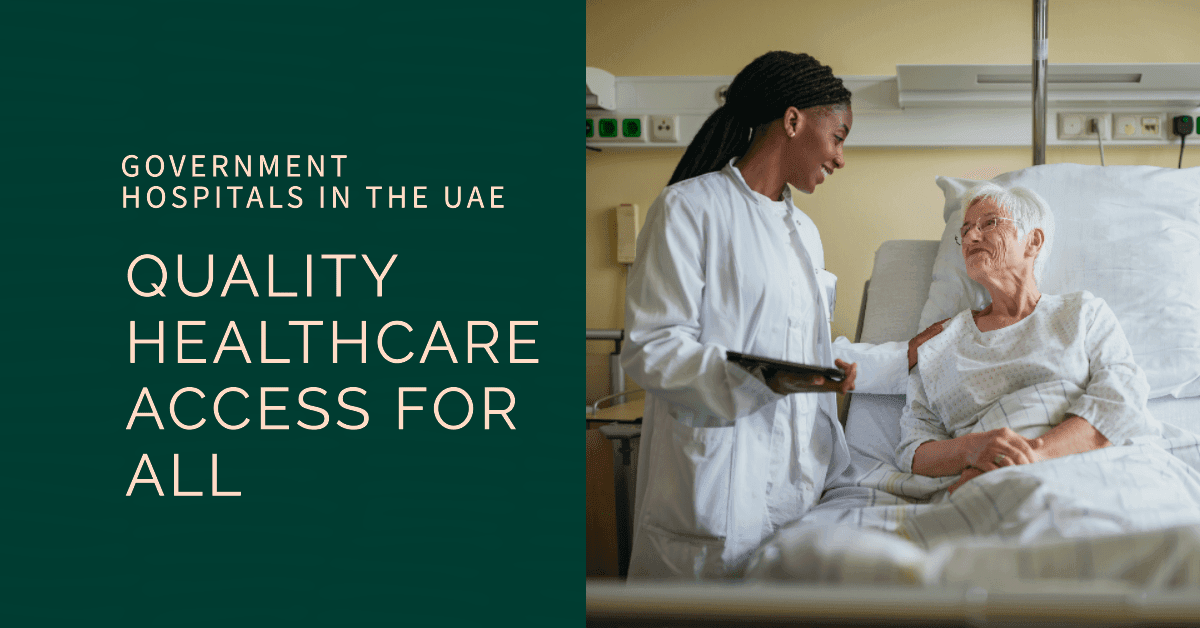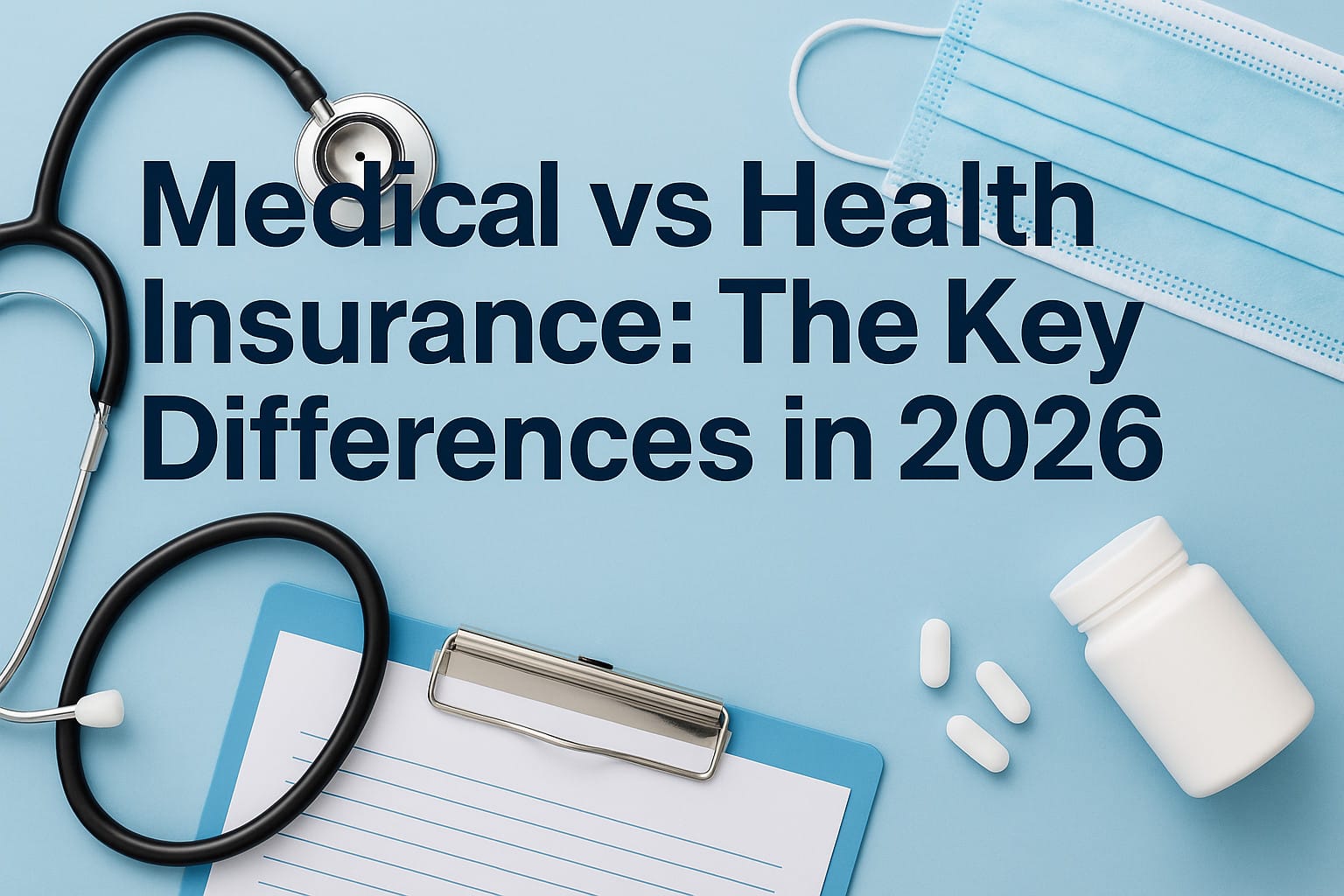The United Arab Emirates (UAE) is a place with really tall buildings and fancy living. They also make sure that the people who live there can get really good medical help. In this blog, we will talk about the special hospitals run by the government in the UAE.
From the busy streets of Dubai to the calm and pretty places in Abu Dhabi, these hospitals are really important. They give really good medical care to everyone who lives or visits there. Let’s explore the different things these hospitals offer, like really good facilities and how they really care about people. This is how they make sure everyone can get medical help in the UAE.
Healthcare in the UAE

The United Arab Emirates (UAE) has a rapidly developing healthcare infrastructure. In recent years, the government has invested heavily in new hospitals, clinics, and diagnostic centers. This has led to a significant improvement in the quality and availability of healthcare in the UAE.
Public vs. Private Healthcare Facilities
The UAE has two types of hospitals: one for everyone and one you must pay for. The government pays for the hospitals for everyone, so Emirati people can use them for free. Companies own the other hospitals, and if you go there, you have to pay money.
Using hospitals for everyone has some good things. First, they have lots of good equipment and workers. Second, they can help with many different health problems, even hard ones. Third, they don’t cost as much as the other hospitals.
But there are also some not-so-good things about these hospitals. First, you might have to wait long, especially if it’s not an emergency. Second, some hospitals might not be as good as others. Third, these hospitals can be really full and noisy.
The hospitals you pay for in the UAE are fancier and more personal. You don’t have to wait as long, there are fewer patients for each doctor, and they have more nice things. But, they also cost a lot more money than the other hospitals.
The Importance of Government Hospitals

Government hospitals are really important in the UAE. They help everyone who lives there, no matter how much money they have or where they come from. This is a big deal because it means that every person in the country can get good healthcare.
These hospitals also help people who are poor or in a tough situation. They give free or cheaper care to people who don’t have insurance. And if someone can’t pay for their treatment, the hospitals can help them with money. This way, everyone in the UAE can get the healthcare they need, no matter how much money they have.
Apart from healthcare, these hospitals also teach people to become doctors, nurses, and other medical workers. They also study new ways to treat illnesses and use new technologies. This makes healthcare in the UAE better and makes sure that everyone can use it.
Key features of Government Hospitals
Here are some of the key features of government hospitals:
- Accessibility and coverage: Government hospitals are hospitals that anyone can go to and have regular check-ups, even if they don’t have much money. This is different from private hospitals that might make you pay. Government hospitals are also in more places, including faraway areas where private hospitals aren’t found.
- Range of medical services offered: Government hospitals can help you with lots of medical things. They can take care of you if you’re sick or hurt, do surgeries, help with having babies, and even support your mental health. They also have special parts for treating certain serious illnesses like cancer or heart problems.
- Highly trained medical professionals: The people who work in government hospitals are really good at their jobs. They include doctors, nurses, and other helpers who know a lot about medicine. They can do many different medical things. The people who work in these hospitals also keep learning new things so they can use the best and newest medical methods.
- State-of-the-art technology and modern facilities: Government hospitals have really advanced tools and modern buildings. They can use machines like MRIs and CAT scans to check what’s happening inside your body. They also have special tools for surgeries and other treatments. The buildings are clean and comfortable for patients.
UAE’s Commitment to International Healthcare Standards

The UAE really wants to give really good healthcare to the people who live there. They have spent money on things like making new hospitals and clinics, teaching healthcare workers, and following global rules for healthcare.
In 2012, the UAE Ministry of Health and Prevention (MoHAP) launched the National Quality Assurance Program (NQAP). The NQAP is a comprehensive quality improvement program that aims to ensure that all healthcare providers in the UAE meet international standards.
The NQAP includes a number of initiatives, such as:
- The development of a national healthcare quality framework
- The implementation of a national patient safety program
- The accreditation of healthcare providers
The UAE has also signed a number of agreements with international healthcare organizations, such as the World Health Organization (WHO) and the Joint Commission International (JCI). These agreements commit the UAE to meet the standards set by these organizations.
Regulatory Bodies Overseeing Healthcare Quality and Safety

The MoHAP is the big group in charge of making sure healthcare is really good and safe in the UAE. The MoHAP has different parts that look after different things:
- The Department of Health Regulation: This department is responsible for licensing and regulating healthcare providers.
- The Department of Health Planning and Development: This department is responsible for developing and implementing policies and programs to improve healthcare quality.
- The Department of Health Research and Statistics: This department collects and analyzes data on healthcare quality.
In addition to the MoHAP, there are a number of other government and non-government organizations that play a role in overseeing healthcare quality and safety in the UAE.
These organizations include:
- The National Health Regulatory Authority (NHRA): The NHRA is an independent regulatory body that was established in 2014. The NHRA is responsible for regulating a wide range of healthcare products and services, including pharmaceuticals, medical devices, and clinical trials.
- The Emirates Quality Council (EQC): The EQC is a non-profit organization that was established in 1995. The EQC is responsible for promoting quality management in the UAE. The EQC provides a number of services to businesses, including training, consultancy, and accreditation. The EQC is headquartered in Abu Dhabi, and it has offices in all seven emirates of the UAE. The EQC is a member of the International Organization for Standardization (ISO) and the Arab Standards and Metrology Organization (ASMO).
- The Health Care Accreditation Council (HCAC): The HCAC is a non-profit organization that was established in 2007. The HCAC is responsible for accrediting healthcare providers in the UAE. The HCAC uses the international standards set by the JCI.
Accreditation Processes Ensuring High Standards in Government Hospitals
Government hospitals in the UAE are required to be accredited by the HAC. The HCAC accreditation process is rigorous and ensures that hospitals meet international standards of quality and safety.
The HCAC accreditation process includes a number of steps, such as:
- A self-assessment by the hospital
- An on-site inspection by the HCAC
- A decision by the HCAC on whether to grant accreditation
Hospitals that get approved need to do a checkup every three years. This makes sure they still follow the good rules for quality and safety set by the HCAC.
The HCAC checks government hospitals to make sure they give really good healthcare to people who live there. This makes sure hospitals are as good and safe as hospitals around the world. This helps keep patients safe and makes their care better.
Government Hospitals in the UAE
| Emirate | Hospital Name | Location |
| Abu Dhabi | Sheikh Khalifa Medical City | Abu Dhabi |
| Al Rahba Hospital | Abu Dhabi | |
| Al Ain Hospital | Al Ain | |
| Tawam Hospital | Al Ain | |
| Al Dhafra Hospital | Madinat Zayed, Western Region | |
| Corniche Hospital | Abu Dhabi | |
| Mafraq Hospital | Abu Dhabi | |
| Al Mafraq Orthopedic and Specialty Hospital | Abu Dhabi | |
| Dubai | Rashid Hospital | Dubai |
| Dubai Hospital | Dubai | |
| Latifa Hospital | Dubai | |
| Hatta Hospital | Hatta | |
| Dubai Diabetes Center | Dubai | |
| Sharjah | Al Qassimi Hospital | Sharjah |
| Al Kuwaiti Hospital | Sharjah | |
| Al Dhaid Hospital | Al Dhaid | |
| Khorfakkan Hospital | Khorfakkan | |
| Kalba Hospital | Kalba | |
| Dibba Hospital | Dibba | |
| Ajman | Sheikh Khalifa General Hospital | Ajman |
| Sheikh Khalifa Specialty Hospital | Ajman | |
| Umm Al Quwain | Umm Al Quwain Hospital | Umm Al Quwain |
| Ras Al Khaimah | Saqr Hospital | Ras Al Khaimah |
| Ibrahim Bin Hamad Obaidullah Hospital | Ras Al Khaimah | |
| Al Dhaid Hospital | Ras Al Khaimah | |
| Fujairah | Fujairah Hospital | Fujairah |
| Sheikh Khalifa Bin Zayed Hospital | Fujairah | |
| Dibba Hospital | Fujairah |
Conclusion
To sum it up, government hospitals in the UAE make sure that good healthcare is available to everyone. These hospitals have modern equipment and skilled doctors, and they care about helping everyone, no matter who they are.
They offer many kinds of medical help to people who live here. They want to stop problems before they get bad, and they use the best treatments available. This shows that the UAE really wants people to be healthy and feel good.







